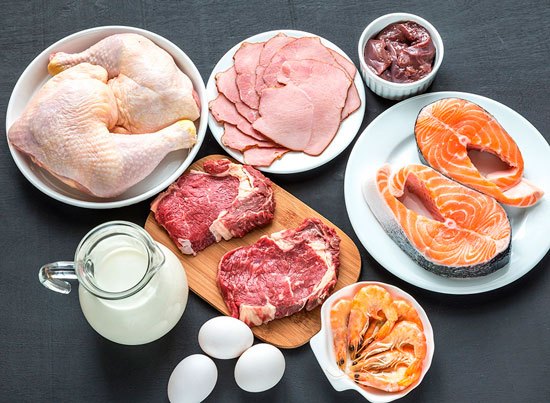How much weight can you really lose in a month?
Excess weight makes it easier to lose weight. The more a person weighs, the easier it is to lose excess weight. The hardest thing to get rid of are the last few kilograms, or rather two to five. The main thing is to lose weight correctly. You can't stick to a strict diet. Otherwise, health problems cannot be avoided.
Don't neglect training. Some calories are lost during exercise. Thanks to various variations of weight loss, including those based on proper nutrition without physical activity, as well as using training, gym classes, jogging and more.
How much can you lose without exercise and on proper nutrition in a month?

Losing weight involves the body first losing excess fluid. The two to five kilograms that are lost in the first week are not excess fat, but water. Fat reserves begin to disappear only from the second week. How much will be lost depends entirely on individual characteristics. What matters is nutrition, activity, whether there is a predisposition to obesity, hormonal levels, and health.
The exact indicators depend entirely on the individual. To maintain health and maintain weight, it is not recommended to lose more than 1-1.5 kilograms per week, which is about 200 grams per day. Strict restrictions allow you to lose much more mass. However, it will return as the body begins to store fat to have an energy reserve in case of starvation.
How much fat can you REALLY burn in a month?
On a vegetarian diet

It has some restrictions that must be observed:
- Absolutely any meat is prohibited, that is, from killed animals and birds;
- Strict veganism requires the exclusion of dairy products, fish, and eggs from the diet.
Such a diet provokes a deficiency of animal protein. Its deficiency leads to a significant decrease in muscle mass. Consequently, weight is lost not only due to fat deposits. A certain proportion of kilograms are lost due to muscles. The result of this can be dystrophy.
Digestion of animal fat and protein contained in meat forces the body to spend approximately four hours on digestive processes. If you stop eating meat products, your own reserves of protein and fat will begin to be used up faster. A person will begin to lose from 2 to 3 kilograms per week, but muscle fibers will begin to disappear along with them. By eating this way, you can lose up to 15 kilograms in a month, but still look unhealthy.
Adhering to a vegetarian diet is recommended for people with blood type II. This is due to the characteristics of the body, which better assimilates plant rather than animal food. For other people, such nutrition is not balanced, that is, it is contraindicated.
On a protein diet

It is considered most effective in the fight against extra pounds. Eating protein foods for a long time is not recommended. Excess of nutrients leads to disruption of the excretory organs. The monotony and imbalance of the diet provokes the fact that the body is constantly under stress and becomes vulnerable, which means that the lost kilograms can return again. Therefore, it is permissible to adhere to such a diet only for a short period of time.
By eliminating carbohydrates from the diet, weight loss occurs mainly due to the loss of energy reserves, that is, fat deposits. Muscle mass remains virtually intact by reducing portions, frequent meals, and getting large amounts of protein. The first week of a protein diet allows you to lose almost 7 kilograms if the excess weight is 20 kilograms or more. Then the excess weight will begin to fall much more slowly. The rate of weight loss will be from 200 to 250 grams per day.
Combining proper nutrition and exercise

Physical activity provokes additional burning of calories (both incoming and stored as fat deposits). Performing cardio training allows you to lose about 800 kcal per hour, which makes a significant contribution to the fight against excess body weight. Each gram of fat contains about 9 calories, which means that within a sixty-minute workout, about 90 grams of fat are lost, if you don’t also take into account the fluid that comes out with sweat.
To achieve maximum effect, adherence to the following rules:
- compiling a diet predominantly from protein foods;
- minimizing foods high in carbohydrates, especially fast ones, which include baked goods and confectionery;
- consumption of simple and complex carbohydrates only in the morning;
- compliance with the drinking regime;
- training three to four times a week;
If you run every day for 30 minutes

In half an hour of running, about 400 kcal are burned, but only if the load is correct. It assumes that the pulse must be rapid, that is, at least 120 beats per minute. If you calculate the amount of fat burned, it will be approximately 45 grams. It is important to remember here that energy from the fat depot begins to be consumed only 20 minutes after the start of jogging. The exception is running on an empty stomach. If you exercise after eating, only the calories you eat will be burned.
Exercise and weight loss

Complex workouts make no sense without a balanced diet and when you overeat. People who consume from 3000 to 4000 kcal per day, even while intensely exercising, can gain weight and not always muscle mass. This is due to a violation of the basic principle of losing weight, which is that the number of calories consumed should be less than those expended.
What if you don't eat after six in the evening?

This principle of nutrition works only in cases where you go to bed no later than 22.00. Fasting for four hours and then for another whole night sends a signal to the body that it needs to accumulate energy. Low-fat fermented milk products drunk before bed will not do any harm. Kefir, for example, perfectly satisfies hunger, does not contain carbohydrates, and therefore is not stored as fat.
No more than 1000 kcal per day
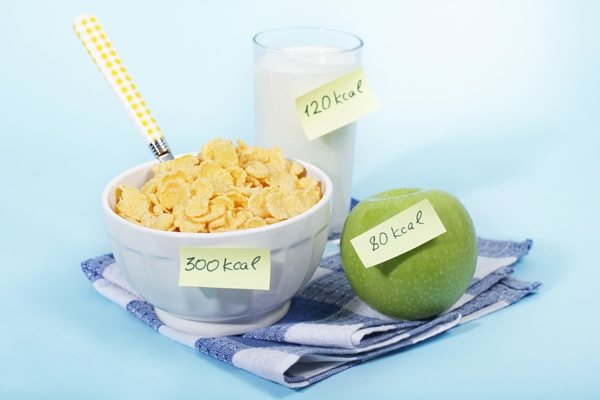
Proper nutrition, which allows you to lose weight and not plunge the body into a state of storing energy in reserve, requires maintaining a daily caloric intake of 1200 calories. If you eat no more than 1000 kilocalories, this will have negative consequences. Eating at this pace, a person sooner or later breaks down, and any excess immediately begins to be deposited in fat, and if you return to your usual diet, even more intensely.
1200 calories per day
Reducing the energy value of food is the surest way to lose weight. It all depends on the source of calories. If 1200 kcal comes from confectionery, you won’t be able to lose weight. The kilograms will begin to fall off if a balance is maintained between carbohydrates, fats, and proteins, that is, in a ratio of 30% to 20% to 50%. Sugar is definitely prohibited. If you eat a balanced diet, you can lose 4-6 kilograms every month.
How I lost 8 kg in a week.///My story
How to set realistic weight loss goals
Make sure the goals you set are achievable. Most people can easily lose 5 kilograms in a month. By sticking to a diet and exercising a lot, you can lose 7-8 kilograms. However, it is better to take small steps. Extreme diets and exhausting workouts will not give you results that will last for a long time, since this approach is too much stress for the body.
It is much easier for a person weighing 100 kilograms to lose 5 kg in 1 month than for someone weighing 60. But for the average person losing weight, 3-5 kg per month is an entirely achievable goal.
All you need is regular exercise and a balanced diet.
Unrealistic goals are a recipe for failure. It's better to gradually set yourself small goals that you can achieve relatively easily. Give your body time to get used to the exercises. Understand your diet and get rid of bad habits. Be patient and the result will come.
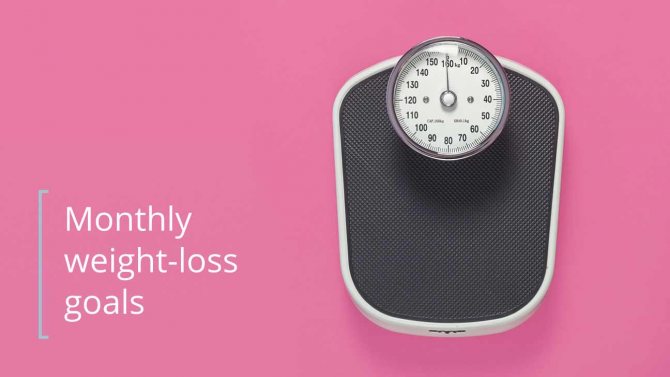
What affects the rate of fat burning

Everyone loses fat differently, which is due to three factors:
- Food. Fat deposits disappear faster if you consume a minimum of fats and carbohydrates.
- By training. Thanks to physical activity, extra calories are burned.
- Metabolism. A slow metabolic rate means that fat is burned slowly or not at all. Exercise and proper nutrition can increase your metabolism.
If you follow these three rules, the fat will begin to disappear effectively.
Weight loss is not a linear process
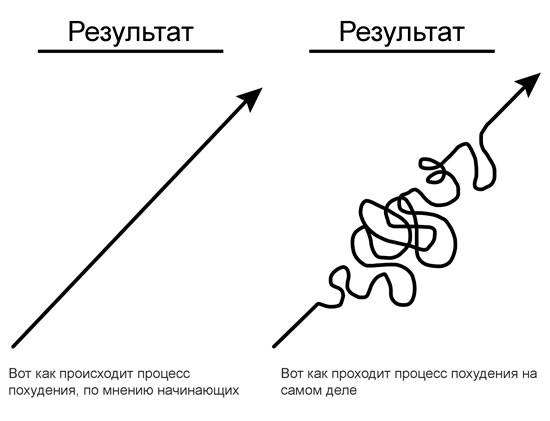
As much as we might want it to be, weight loss is not a linear process.
This means that you will not lose 500 grams per week for 12 weeks until you reach your goal.
There will be a week when you manage to lose a kilogram of weight, and then two weeks when you cannot lose anything.
The secret is to continue methodically and trust the program.
30 days is not enough time to see changes in your body.
Sorry if I just dashed all your hopes, but 30 days is not even approximately enough to notice any significant changes, even if the nutrition is as good as possible.
I'm not saying there won't be results.
But seriously, what did you expect in 30 days?
Professional fitness models work hard for 20 weeks to get into shape, but you want the same thing in thirty days?
Don't tell me, man is not built like that.
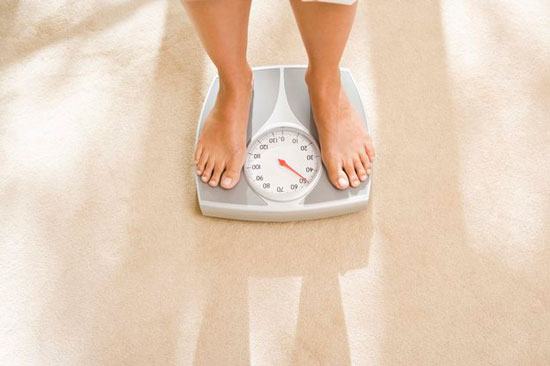
Weight Loss Standards

To lose weight without health consequences, you need to lose no more than one kilogram weekly. This allows you to maintain your metabolic rate, not harm internal organs, not lose skin elasticity, and also save energy to fight excess weight. If you follow this rule, the result will be maintained for a long time.
The main thing is to avoid the following mistakes:
- Starve. If caloric intake falls below the permissible norm, the body begins to accumulate fat at an even greater rate, which means that metabolism slows down.
- Avoid fats. Only trans fats are harmful, while unsaturated fats are healthy and necessary. Free fats, combining with molecules of unrefined oils, are removed from the body and speed up this process.
- Avoid salt. Adding flavor to food, if the water-salt balance is disturbed, it is capable of retaining excess liquid. Salt does not affect weight loss, but in order to preserve bone structure and prevent cramps, it must be present in at least 2 grams per day.
How much weight can you lose? In a week, in a month, in three...
Factors influencing weight loss
The number of pounds lost and the rate of weight loss depend on a number of factors, including:
- Age
- Current weight
- Current activity level and training program
- Motivation
- Metabolic rate
- Eating habits
- Daily stress level
- General health and possible diseases, such as chronic fatigue, hormonal imbalance, etc.
How much weight you can lose mainly depends on your metabolic rate. The more muscle you have, the faster your metabolism, therefore, the more kilograms you can lose over a given period of time. In other words, muscle is the best weight loss program! Consumption of whey protein provides significant assistance in gaining muscle mass. If you have any doubts whether protein is harmful or not, then read our article.
Another factor that influences weight loss is your overall health. Hormonal imbalances, chronic fatigue and other disorders can significantly slow down the process of losing excess fat. Additionally, as you age, it becomes more difficult to maintain a healthy weight.
Lifestyle , namely the diet you currently follow, sports habits, and stress levels also affect your body’s ability to shed extra pounds. Stress leads to increased cortisol levels, which in turn stimulates the accumulation of fat in the body. Losing weight is 80% dependent on nutrition, so it is important that your diet is as healthy and healthy as possible.
No training program, no matter how ideal, will save you if you have bad eating habits.
The main rule of losing weight:
In order to lose weight, you need to burn more calories than you consume in a day.
The best option is to lose weight by 1 kg per week, so as not to harm and burn fat, and not lose muscle and water.
This means that if you spend 500 calories more than you consume every day for 4 weeks (28 days), you will lose 2 kilograms. You can lose about this much weight in a month without harm to your health. But let's not forget about the many accompanying factors.
How to count calories?
It is best to keep track of the amount of calories you are losing using a special food diary. Using tables of dietary fat and calorie content of foods makes it easier to track your daily calorie intake. The main thing is to take into account the exact mass of the portion.
Eating about 22-26 kcal per kilogram of your own weight helps you lose weight and stay healthy. Multiplying your weight by the norm allows you to calculate your daily calorie intake, taking into account the fact that the amount of protein per 1 kilogram of weight should be 2-3, the same amount of carbohydrates, and fat 1-2 grams. To calculate how much this is in calories, you can take into account the fact that for every gram of protein there are 4, carbohydrates - 4, and fat - 9 kilocalories.
Even more tips on how to lose weight
Losing weight is much easier in words than in reality. Stop tormenting yourself with thoughts about how much you can lose in a month, and just start changing your lifestyle, and the weight will go away on its own.
Avoid unhealthy snacks
Each of us has food addictions. And in the evening, when you are tired after a long day, you really want to treat yourself to your favorite delicacy. If you love junk food or tend to eat large portions, try diversifying your diet with fiber-rich foods. This will help you maintain a feeling of fullness and not gain extra pounds.
Choose nuts and fruits as snacks. This will help you shed those extra pounds and eventually overcome your cravings for unhealthy foods.
Do small exercises throughout the day
For many, starting to train is an impossible task. Start small, you don't even need to go to the gym. Skip the elevator and take the stairs everywhere.
Every evening, go for a short walk to the nearest park. Just 30 minutes a day, and the results will not be long in coming. At home, do simple exercises every day, such as 5 sets of 20 squats or lunges. These steps won't take up much of your time, but will definitely be helpful in creating your new healthy lifestyle.
Hide the scales
Don't weigh yourself every day - not making immediate progress can be demotivating. Losing weight should always be a long-term endeavor, so there's no point in obsessing over the scale.
Weigh yourself every 2-3 weeks. By adhering to all the rules, every time you will see a result that will motivate you to continue working on yourself.
Avoid processed foods
Processed and refined foods often contain many ingredients that are extremely harmful to your body.
Eat right, choose natural products. Eat an apple instead of chocolate, whole grain bread instead of a loaf, etc.
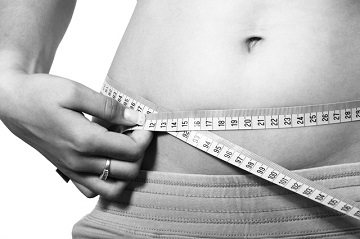
How to lose weight correctly?

Losing weight requires compliance with several important rules that must be followed in order to maintain the achieved result and not harm your own health.
Proper and dietary nutrition
Any diet gives only a temporary effect. Only a complete revision of your diet allows you to stay in shape. This presupposes the absence of too strict restrictions so that there is no desire to break.
The following rules must be observed:
- eat small meals every three hours;
- be sure to have breakfast, since the calories incoming in this meal are the most important;
- snack on vegetables, dried fruits, dairy products, fruits, nuts;
- never overeat;
- do not undereat at night;
- do not eat carbohydrates in the evenings, with the exception of fiber-rich vegetables.
Physical activity

Fat burning workouts help you lose even more weight. The main thing is to choose the right program and loads. A professional trainer can help you create it. If you exercise on your own, you should run, ride a bike, do endurance exercises, and use cardio equipment. The duration of training should be from 40 to 60 minutes, and the pulse should be 120-160 beats per minute.
You should start practicing with a warm-up. Fast walking allows you to warm up your muscle ligaments. To avoid getting tired, you need to run at intervals. Five minutes of running and two minutes of walking. If jogging is done daily, then you need to exercise for at least half an hour. Hour-long workouts will bring results if you run at least three to four times a week.
You can't run on a full stomach. You should wait at least an hour after eating. It is forbidden to eat up your fatigue with fatty and sweet foods. It is better to drink water, and you should eat only 30 minutes after your run.
Expert advice

Nutritionists will never advise anyone to follow a mono-diet based on one or two products. Experts recommend not restricting calories too sharply. Otherwise, stress will lead to breakdown and uncontrolled overeating. You don't have to give up all your favorite foods. Once a week you can indulge in a salad dressed with mayonnaise, low-fat sour cream or kefir.
Professional fitness trainers note that many people, wanting to lose weight, train for two or three hours and then also fast. This does not allow you to speed up weight loss. Prolonged physical activity only leads to fatigue. A tired body does not release the energy accumulated in the fat depot, since it needs it for “survival”. Fasting leads to a decrease in metabolic rate.
Trainers advise moderate physical activity and good nutrition after exercise. Food eaten during this period of time, on the contrary, is quickly absorbed, restores the body, relieves fatigue, which makes the process of fat accumulation unnecessary.
Different approaches to losing weight
The main question is: where to start the correct process of losing weight? We have prepared some tips especially for you.
Control your daily calorie intake
If you stick to the rule above, you can turn weight loss into a numbers game. Every day, write down everything you eat for the day in a special notebook or smartphone.
Burn more calories than you eat, and the weight will start to come off. Most importantly, be true to yourself!
Understand your training program
The fastest way to lose weight is to increase the intensity of your cardio workouts. Yes, many of us hate cardio, but it is the most effective way to lose weight. If running isn't your thing, try cycling, swimming, boxing and even dancing.
If you don't have time for a long cardio workout, try high-intensity interval training (HIIT). The basic principle of this workout is short, intense cardio exercises combined with short rest periods.
But, as mentioned earlier, muscles are also an excellent means of getting rid of excess fat, so it’s worth adding strength training. This will help you not only lose weight, but also gain a beautiful, toned body.
If you have not exercised before, or have not exercised regularly, then start small and move gradually. Give your body time to adjust to your new lifestyle, and make sure you get enough rest to allow your muscles to fully recover between sessions.

Eat the right foods
Counting calories every day can be exhausting. And not everyone has enough time for intense training. But we are all able to eat right by choosing only healthy foods.
Every day, eat fresh fruits and vegetables, lean meats such as chicken, fish rich in omega-3 fatty acids (or fish oil), and healthy snacks such as almonds, yogurt and eggs. It is also important to drink enough water, as this has a positive effect on the weight loss process.
Losing weight does not mean starving. For any action, the body requires energy and fuel. And food is this very fuel. Don't be afraid to eat, just choose healthy and nutrient-rich foods.

What is the danger?
With any method of losing weight, it is important to remember your health. This means constantly supplying the body with the necessary nutrients. In particular, the low-calorie diet mentioned above is not suitable for long-term adherence; resort to it if you need to get rid of a few centimeters at the waist in order to put on your favorite dress. Long-term weight loss involves general changes, not starvation. Therefore, the frequent question of how much you should not eat to lose 10 kg does not apply to a healthy way to get rid of extra pounds.
If you are overweight, you can try “monthly” diet programs. With their help you can lose more than 5 kg. But the expectation of stable weight loss is an illusion. The body first gets rid of energy, which it then quickly absorbs (eg, dehydration, burning of carbohydrates). Therefore, after leaving a short-term diet, these substances return to the body, a yo-yo effect occurs.
It's not helpful, it's ineffective. Therefore, there are principles that apply to any weight loss (short-term, long-term changes):
- The basis is a long-term change in diet, which involves reducing high-calorie, sugar-containing foods and other unhealthy foods.
- In addition to diet changes, pay attention to drinks: the best option is pure or mineral water. Green tea and caffeine are not prohibited.
- Movement is no less important than adjusting your diet. It is necessary to increase energy consumption.
- Do not overdo it with cardio exercises or strength training. These activities will not ensure weight loss. Although cardio is a popular activity in fitness centers, it is not the only solution. Excessive physical activity depletes the body, which begins to accumulate energy reserves.
Instead of 1-month goals, use the milestone method
Trying to find out. how much weight can you lose in 4 weeks and lose that weight in 30 days) don’t work because you don’t focus on developing lifestyle habits.
That's why people who try to lose excess weight for a wedding or graduation immediately gain back the lost pounds.
They are so eager to get in shape quickly that they have no idea what to do once the date has passed.
How to overcome this barrier?
Use the 1 month checkpoint method.
Monthly milestones relieve you of the mental pressure created by having to achieve some crazy goal by the end of the month.
They help you distribute your mental energy more efficiently and give you a sense of achievement after each period worked.
For example:
Goal for 1 month: “I need to lose 5 kilograms.”
1 month milestone: “I will eat healthy and stay within my daily caloric intake.”
Goal: “I will not eat sugar.”
Checkpoint: “I will reduce my sugar intake and focus on staying within my daily caloric intake.”
Goal: “I will spend 2 hours in the gym 6 times a week.”
Checkpoint: “I will go to the gym at least once this week, then 2 times next week, and 3 times in two weeks. I will continue to practice as long as there are improvements.”
As you can see, the point here is to take gradually increasing steps towards the goal instead of trying to lose everything unnecessary in a month and fly face-first into the asphalt, as happens with most people.
Bottom line: Use monthly milestones to build momentum and achieve lasting results.
